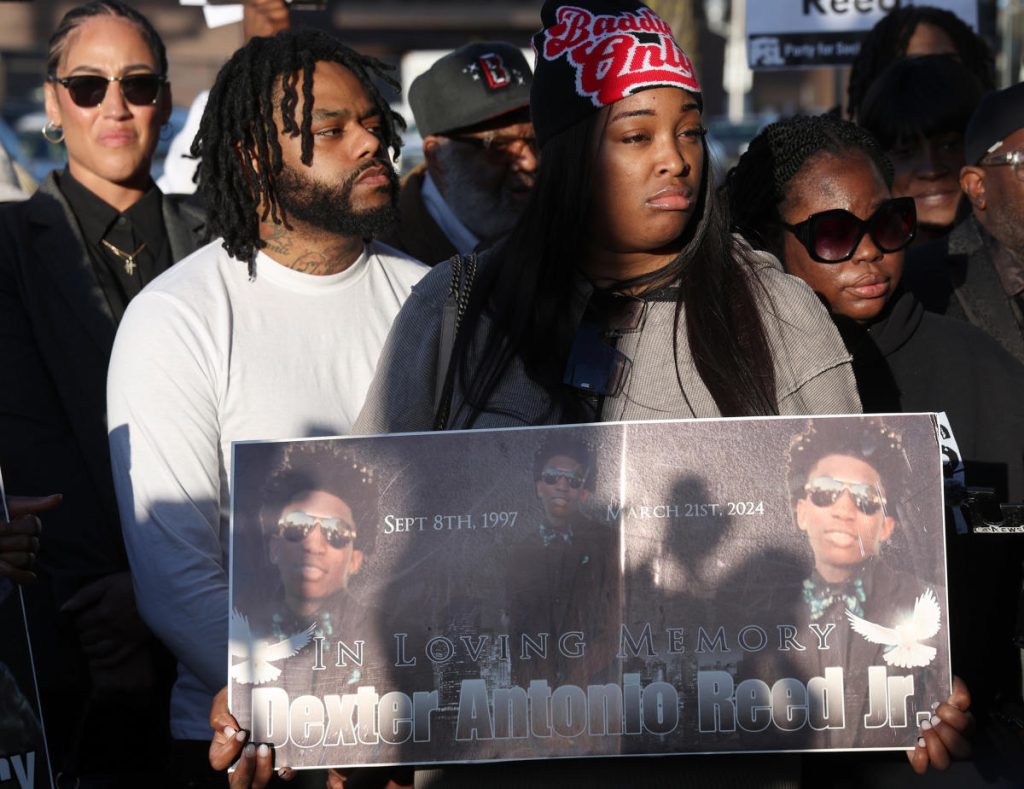Dexter Reed, who was killed in a shootout with Chicago police, had a history of seeking help for his financial, medical, and psychological struggles following a previous shooting. Reed, who was 26 when he died, filed multiple legal claims between March and August of the previous year, acting as his own attorney. These lawsuits included allegations against the city’s Finance Department, a former college basketball teammate, and Reed’s former employer, Monterrey Security. Reed also faced legal trouble for illegally possessing a gun at a music festival, and he filed complaints against Mount Sinai Hospital and the Social Security Administration.
Court records show that Reed’s legal claims were quickly dismissed or stricken from the court call. He alleged mistreatment while in a coma recovering from his previous gunshot injuries, and claimed that his former basketball teammate set up a GoFundMe account in his name without permission. Despite his efforts to seek legal remedies for his various struggles, he continued to face challenges and legal trouble in the months leading up to his death. Reed’s family and attorney have highlighted the traumatic impact of the previous shooting on his physical and mental well-being.
The fatal shootout involving Reed and Chicago police officers drew immediate attention and raised questions about policing practices in the city. Video footage of the incident showed Reed initially complying with officers’ commands before allegedly shooting at an officer standing on the passenger side of his vehicle. The officers then opened fire, shooting dozens of rounds at Reed as he exited the vehicle and fell to the pavement. The officers involved will be required to explain their use of force, as per department policy and legal requirements.
Experts have pointed out the prevalence of non-safety-related traffic stops by police officers across the United States, highlighting the potential risks and lack of effectiveness of such practices. While Chicago police officers often recover illegally possessed guns through traffic stops, experts suggest that this approach may not be the most effective way to address gun violence. The shooting of Dexter Reed has raised concerns about the validity of the traffic stop that led to the encounter with the officers and the fatal outcome.
The Civilian Office of Police Accountability (COPA) is conducting an investigation into the shooting, and has recommended that the officers involved be stripped of their police powers during the ongoing inquiry. The investigation is expected to take months, if not longer, to conclude, and COPA will submit its findings and recommendations to the police superintendent. If allegations of misconduct are sustained, the officers could face administrative charges, potential suspension, or termination from the Police Department. The incident has sparked discussions about the need to address harmful racial disparities and reduce unnecessary and potentially dangerous interactions between law enforcement and the public.
In the wake of Reed’s death, his family, attorney, and community members have called for a full examination of his struggles and the circumstances leading up to the fatal encounter with police. Reed’s previous legal claims and documented challenges shed light on the complex issues he faced in the years before his death. As investigations continue and reforms are considered, the case of Dexter Reed serves as a reminder of the need for comprehensive support and understanding for individuals dealing with a range of physical, mental, and financial challenges.


